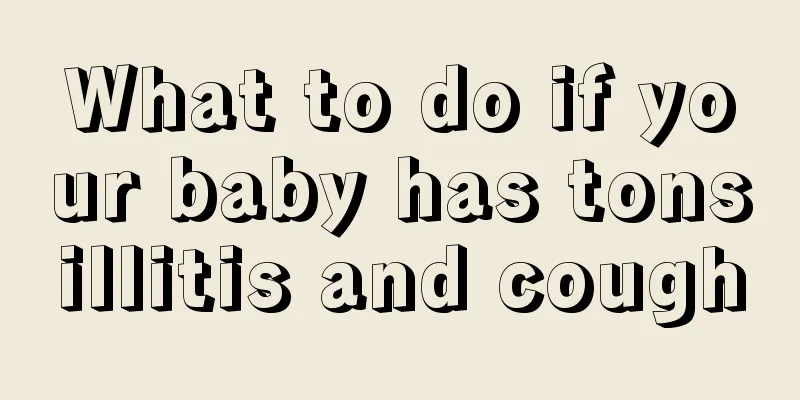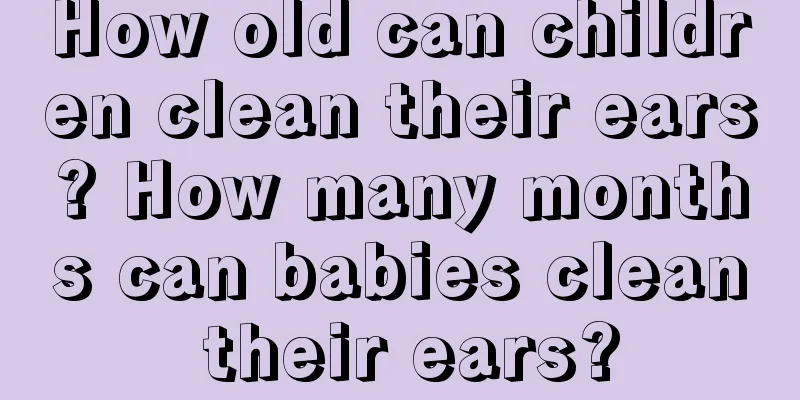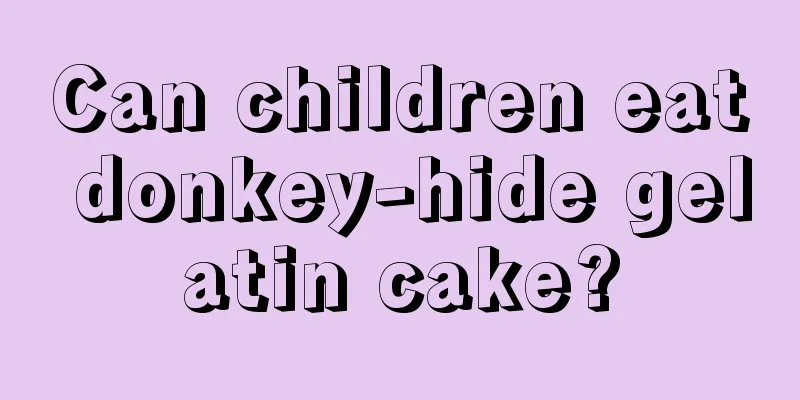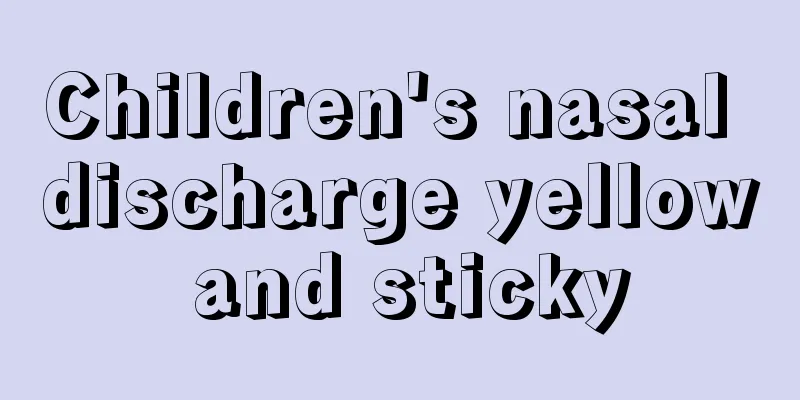What to do if your baby has tonsillitis and cough

|
Nowadays, many babies have symptoms of tonsillitis shortly after birth. Parents are very worried about this because when a child is just born, his resistance is very low and he is prone to some diseases, but he cannot take medicine randomly because it will have side effects on the baby's growth. So today I am here to tell you what to do if children have tonsillitis? How should it be treated? The tonsils are located in the tonsillar crypts and are the first immune organ in the human respiratory tract. They resist and eliminate pathogenic microorganisms such as bacteria and viruses that enter through the mouth and nose. However, when the number of inhaled pathogenic microorganisms is relatively large or their toxicity is relatively strong, it will cause corresponding clinical symptoms and inflammation, namely tonsillitis. Tonsillitis is a common and frequently occurring disease in children. It is divided into acute and chronic tonsillitis, and is more likely to occur when seasons change or the temperature changes. Acute tonsillitis is an acute nonspecific inflammation of the palatine tonsils and a common upper respiratory tract infection. It may be accompanied by varying degrees of acute inflammation of the pharyngeal mucosa and lymphoid tissue, manifested by fever, cough, and sore throat. In severe cases, the high fever persists and swallowing becomes difficult. Examination may show that the tonsils are congested, swollen, and suppurated. Chronic tonsillitis is a persistent infectious inflammation of the tonsils. It is mostly due to repeated attacks of acute tonsillitis or poor drainage of the palatine tonsil crypts, which leads to the breeding of bacteria and viruses in the crypts and the development of chronic inflammation. Examination may show enlarged and congested tonsils, or visible secretions, and swollen submandibular lymph nodes. Causes Beta-hemolytic Streptococcus is the main pathogen. A small number of cases are caused by non-hemolytic streptococci, staphylococci, pneumococci, and Haemophilus influenzae. In addition, adenovirus, rhinovirus or herpes simplex virus can also cause this disease. Mixed infections of bacteria and viruses are also common. In recent years, anaerobic bacteria infections have also been found, and Gram-negative bacteria infections have been on the rise. The above pathogens usually exist in the mouth and tonsils of normal people without causing disease. When certain factors reduce the systemic (malnutrition, rickets, indigestion) or local resistance, or when the original bacteria multiply in large numbers, they may cause disease. Cold, humidity, excessive fatigue, and inhalation of toxic gases such as carbon monoxide can all be triggers. treat 1. General treatment Rest in bed, eat liquid food and drink plenty of water, strengthen nutrition and clear bowel movements. When sore throat or high fever occurs, you can take antipyretics and analgesics orally. Because the disease is contagious, children with the disease must be isolated. 2. Antibiotic Application As the main treatment method. Penicillins are the first choice, and the route of administration is determined based on the severity of the disease. If the condition does not improve after 2 to 3 days of treatment, the cause must be analyzed and other types of antibiotics must be used instead. If conditions permit, antibiotics can be selected based on drug sensitivity tests after the pathogenic bacteria are identified. The above are some of the causes and treatments of tonsillitis in children introduced to us by professionals. Therefore, as parents, we must always pay attention to our children's health. If they encounter any illness, we must go to the hospital for diagnosis and treatment immediately. Never delay or use medication blindly, as this will cause side effects and affect the child's physical health. I hope the above content can help you. |
<<: What to do if your baby has a low-grade fever and cough
>>: Symptoms and treatment of IGA nephropathy in children
Recommend
What is wrong with children's stomach acid? There are many reasons
Children have weak constitutions and often show s...
What should I do if my baby eats jujube pits?
Red dates have high nutritional value. Whether ea...
How to treat children's cough after exercise
When children are young, they like to run around,...
What should I do if my baby has diarrhea?
Babies often have increased frequency of bowel mo...
What to do if a little boy matures early
What should I do if a little boy matures early? A...
Is it normal for a newborn to poop as soon as he feeds?
Many newborns have a problem, that is, if they ar...
What to do if your child has hunchback?
Hunchback has become a disease common among the e...
Why is the child breathing heavily?
Children's heavy breathing often attracts the...
Symptoms of coughing when a baby inhales foreign objects
In life, we often encounter coughs caused by fore...
Correct way to extract teeth for children
Most children have damaged teeth because their te...
How to make steamed apples for baby diarrhea
If your baby has diarrhea, you can feed him some ...
Children have red spots all over their body, parents need to be careful!
Children have low resistance and insufficient imm...
Is it good to clean teeth for children?
Modern people pay great attention to teeth, becau...
What should I do if a child has swollen lymph nodes behind his ears?
The lymph nodes are located below the ears. There...
Introduction to childhood mania
Childhood mania. In the rapidly developing 21st c...









